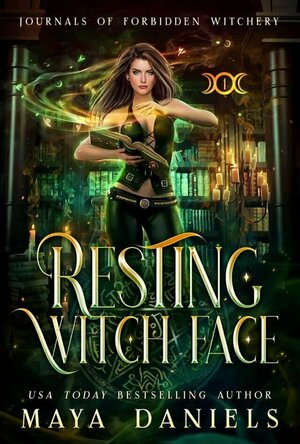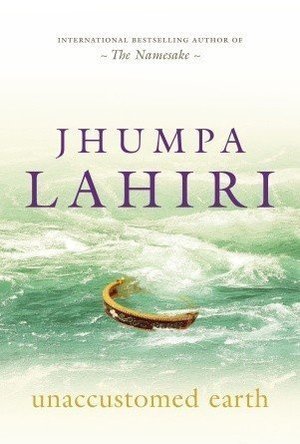
Unaccustomed Earth
Book
Eight stories—longer and more emotionally complex than any Lahiri has yet written—that take us...
India immigrants short stories
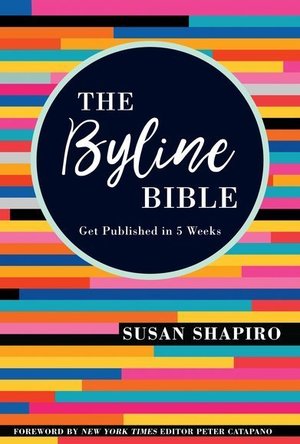
The Byline Bible
Book
Newspaper, magazine, and web editors are desperate for new voices and anyone, in any field, can...
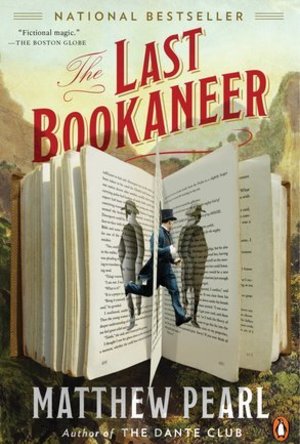
The Last Bookaneer
Book
book′a-neer′ (bŏŏk′kȧ-nēr′), n. a literary pirate; an individual capable of doing all...
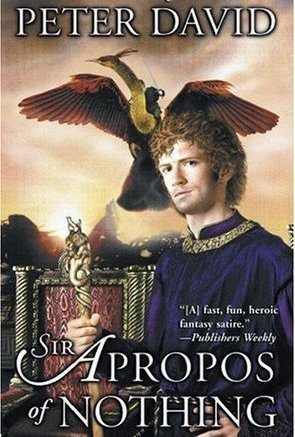
Sir Apropos of Nothing
Book
They were dark and stormy knights...and when they had their way with a helpless tavern wench one...
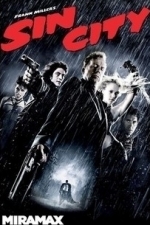
Sin City (2005)
Movie Watch
Sin City (also known as Frank Miller's Sin City)[3] is a 2005 American neo-noir crime anthology film...
Sin City Frank Miller Robert Rodriguez Comic book
Lyndsey Gollogly (2893 KP) rated Scarred Warrior (Dark Warrior Alliance book 7) in Books
Oct 20, 2021
Kindle
Scarred Warrior ( Dark Warrior Alliance book 7)
By Brenda Trim and Tami Julka
Once read a review will be written via Smashbomb and link posted in comments
Being a Dark Warrior and protecting others has been the only focus in Gerrick Haele's life for centuries, until he receives the shock of his life when one of the females he rescues from the archdemon's clutches ignites an arousal that hints at her being his Fated Mate. Problem is, Gerrick's Fated Mate was murdered four hundred years earlier and you are only ever given one mate in a lifetime. Questions of Dark magic and deception carry him down a path involving time travel, serums and fights to the death. Can he set aside his doubt and be the male Shae needs him to be, or will his past come back to haunt him and history repeat itself? Shae Mitchell has spent the last seven months being tormented, raped and tortured by vile archdemons and just wants her suffering to end. She is on the verge of giving up completely when Gerrick sweeps in to rescue her. Her relief at being liberated is short-lived when she realizes the demons have sunk their claws far deeper than the scars on her neck. As she fights to rid her mind of the archdemon's influence, she discovers that the explosive heat she shares with the sexy Dark Warrior threatens to consume her whole.
These get better and better each book! This was Gerricks and Shaes story which was just so well put together. We had the trapped females finally free from cages as well as a fated pair come together. Some catch ups with familiar faces and some exciting news for the king and queen. I have to say this every book I just love Mack more and more. One demon down and one to go before they unleash all hell. Really enjoyed this one.
LeftSideCut (3776 KP) rated Run (2020) in Movies
Oct 10, 2021
There are some genuinely tense moments sprinkled throughout, and some scenes that are quite uncomfortable to watch (with a few creepy shots thrown in for good measure). It wears it's inspirations on its sleeve - Misery is a clear influence here, both thematically and visually, but it feels like there is homage being paid rather than any ripping off.
The main issue I had was with the pacing. There isn't really much of a build up before Chloe starts to figure out that there's some fuckery afoot - kudos for getting straight to it - but it results in a narrative that takes forever to get to its climax. This is a minor gripe, thanks in no small part to the two lead actresses. I love Sarah Paulson in American Horror Story - even in that shows' low points, she always remains a constant positive - so I'm always happy to see her in other projects. Kiera Allen is the show stealer though, and the two have them share a great dynamic that really bolsters all the other positives.
In short, Aneesh Chaganty has crafted a tight and tense thriller with Run, and after this and Searching, I look forward to whatever he next brings to the table.
Debbiereadsbook (1664 KP) rated Music & Dreams (The Road to Rocktoberfest 2023) in Books
Nov 3, 2023
This book is part of the Rocktoberfest 2023 series, a multi author series. I haven't read any others, but they are all stand alone reads.
Lorcan is a rock star, high up the food chain. Rogan is his child's nanny slash teacher. Rogan has all the feels for Lorcan, but knows that's crossing boundaries. Lorcan has something for Rogan, but it isn't till there is an accident that Lorcan begins to feel for Rogan.
Sometimes, you need a super low angst book, with some smexy times and some difficult times thrown in. This book delivers on those levels, and it delivers beautifully!
Rogan has crushed on Lorcan from the start of his employment to teach Lorcan's daughter, Amy. Lorcan's feelings weren't so pronounced from the beginning, but having to look after Ro was an eye opener. And when Lor discovers Ro can sing?? The man was a goner!
I loved Lorcan, and Rogan and Amy as a unit. Amy will be a force to be reckoned with, when she gets older! She sees far too much for a little un, but she has a down to earth demeanor that everyone loves. The things she says to make Lor see Ro, REALLY see him, are far too wise!
I didn't find it especially explicit, but its not about that. This book is about seeing what's in front of you, or rather, who. And about Ro getting over his insecurities to finally be able to fulfill his dreams through HIS music, not just everyone else's.
I loved the guys in the band, Tibi and Finlee and I hope they get a story too.
Hitting spots that I really didn't know I needed hitting, and at short notice too, this was a wonderful read!
5 full and shiny stars
*same worded review will appear elsewhere
Merissa (13786 KP) rated Resting Witch Face (Journals of Forbidden Witchery #1) in Books
Jun 4, 2021 (Updated Jul 18, 2023)
This was a fantastic start to the series! Hazel is a smart-alec, with a sassy attitude, a short temper, and is fuelled by coffee. There is lots to like about her, especially her grumpiness which hides a lot of things. Sissily is a good friend, who has been there for her throughout but falters a bit at the end. I wasn't too keen on that so I'm hoping she pulls it together. And what would a Maya Daniels book be without a buff hero to fall back on?! River comes with his own secrets and I look forward to learning more about him.
I thought the pacing was perfect in this book. It was fast and full of action but without being frantic. It gave me time to enjoy the story, to immerse myself in it, enjoy Hazel's past, and wonder about her future. Alex and Amber are fantastic supporting characters, and I can't wait to learn more about Shadowborn as I'm sure he's dodgy. No reason, just because! 😉
With secrets aplenty, this is a brilliant start to a series I can't wait to continue. Absolutely recommended by me.
** same worded review will appear elsewhere **
* A copy of this book was provided to me with no requirements for a review. I voluntarily read this book, and the comments here are my honest opinion. *
Merissa
Archaeolibrarian - I Dig Good Books!
Jun 4, 2021
ClareR (6081 KP) rated We Germans in Books
Aug 17, 2023
That letter is the book we read, with asides and clarifications from the grandson.
We don’t have a story that covers from the beginning to the end of the war. This is told from when things have started to go wrong for the Germans. The army is fragmented. The soldiers don’t really know where they’re going, but they know that they want to try and make it back to Germany - on foot. These men are scared, confused and the acts they see committed by both sides are horrific.
The grandson helps us to see the effects of the war on his grandfather, and his subsequent imprisonment in Russia. How 70 years post-war have changed him, how the war changed him as well. He acknowledges that he was to blame for what had happened as much as anyone else, but that he was expected to toe the line as a soldier.
This is historical fiction, but its well researched and has the hint of reality about it. It really gives the reader something to think about, and I know that personally, I haven’t found many books out there that cover this period of history in this way. I can’t say as it’s something I want to avidly read lots of books about, but having read this from a more human perspective (rather than a factual history book that lists dates and places), it feels very personal.
This is a short, powerful novel, and I think it’s worth the time spent reading it if you have an interest in either the time in history, or human nature.



